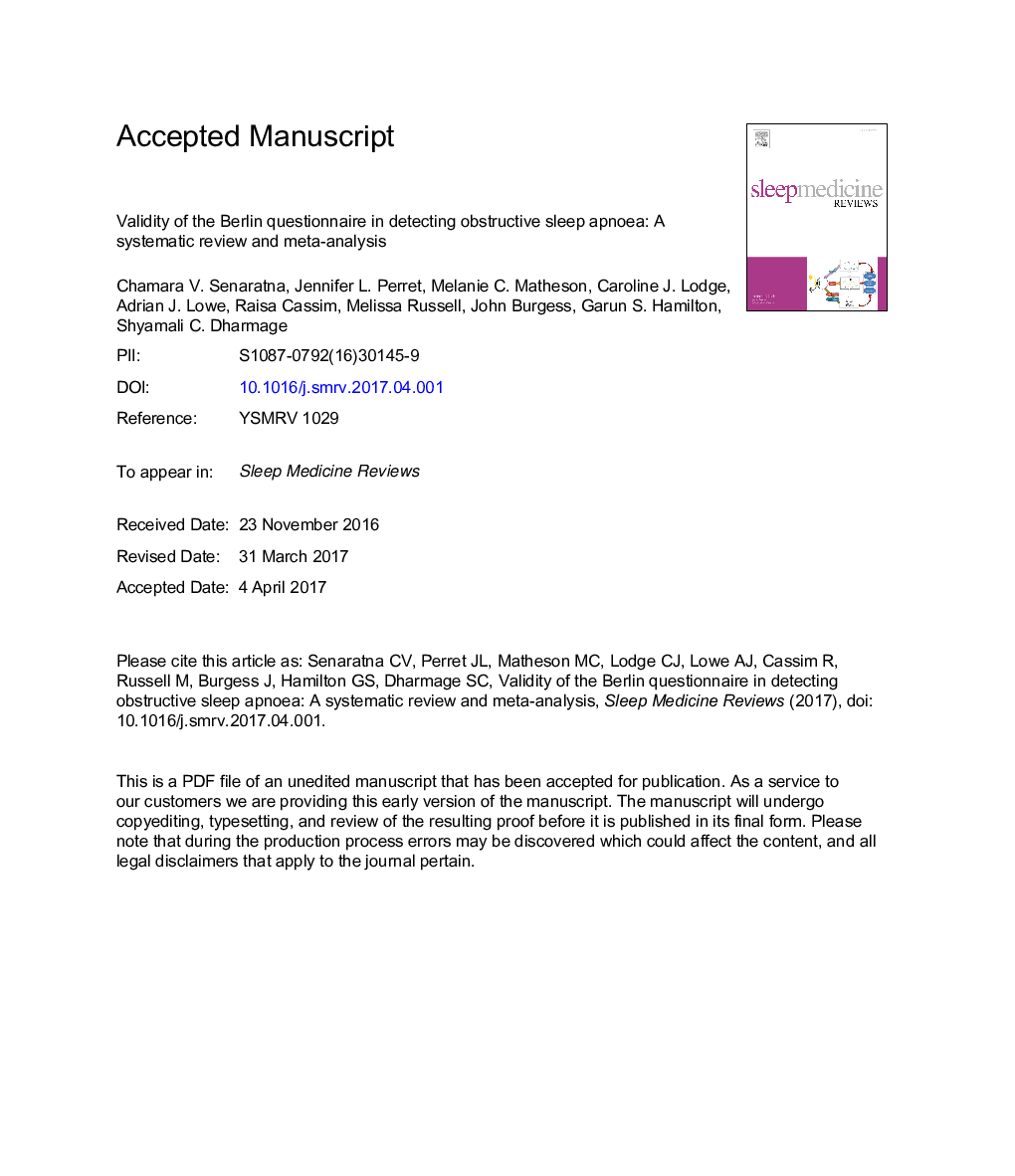| Article ID | Journal | Published Year | Pages | File Type |
|---|---|---|---|---|
| 8691138 | Sleep Medicine Reviews | 2017 | 33 Pages |
Abstract
We aimed to systematically review the Berlin questionnaire as a screening tool for obstructive sleep apnea. We systematically searched PubMed, Embase, and Scopus databases, reviewed articles reporting the Berlin questionnaire's diagnostic utility as measured against type-1 polysomnography, and performed meta-analyses where possible. Thirty five eligible articles showed that the Berlin questionnaire's diagnostic utility varied by study population, definition of hypopnea used, and apnea-hypopnea index threshold used. It had good sensitivity and specificity for detecting clinically relevant obstructive sleep apnea as well as any obstructive sleep apnea in the sleep clinic population. Despite limited evidence, it showed modest to high sensitivity for detecting clinically relevant obstructive sleep apnea or any obstructive sleep apnea in other clinical and general population subgroups. Its specificity was relatively low. Possible reasons for variability in reported diagnostic utility of the Berlin questionnaire are multifaceted. We conclude that the Berlin questionnaire is useful as a clinical screening test and epidemiological tool in the sleep clinic population. Despite limited evidence, it likely has potential clinical and research utility in other populations. Adopting more consistent methodological definitions and focussing more on the general population and specific clinical populations to determine its usefulness as a clinical or epidemiological screening tool are recommended.
Keywords
Related Topics
Life Sciences
Neuroscience
Neurology
Authors
Chamara V. Senaratna, Jennifer L. Perret, Melanie C. Matheson, Caroline J. Lodge, Adrian J. Lowe, Raisa Cassim, Melissa A. Russell, John A. Burgess, Garun S. Hamilton, Shyamali C. Dharmage,
